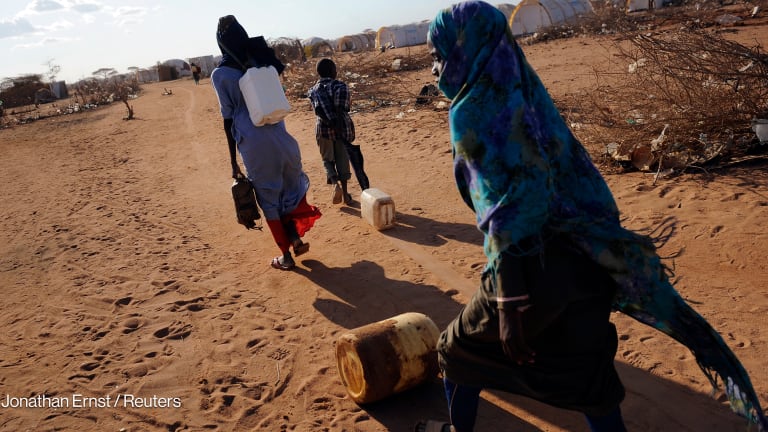Under the banner "Global Transparency: Fighting Corruption for a Sustainable Future," this year's International Anti-Corruption Conference zeroed in on today's key development issues - peace and security, energy and natural resources, climate change and sustainable globalization.
First held in 1983, the IACC has become the world's top gathering on governance and anti-corruption. This year's thirteenth edition was held Oct.30 to Nov.3 in Athens, Greece. Its goal: to promote the elimination of corruption, which is jeopardizing millions of lives primarily in the poorest regions.
The Transparency International's 2007 Global Corruption Barometer illustrates the fact that the poorest and most marginalized communities are among the ones hit hardest by demands for bribes. Countries scoring high on petty bribery were Albania, Cambodia, Cameroon, Macedonia, Kosovo, Nigeria, Pakistan, Philippines, Romania and Senegal, where at least 30 percent of respondents reported having paid bribes.
As the global community "reels from one crisis to another," the lack of accountability and transparency has never been more relevant, said Transparency International Chair Huguette Labelle at the forum. In the least developed countries, corruption levels "can mean the difference between life and death, when money for hospitals or clean water is in play," she noted.
Earlier this year, Transparency International noted in a resolution that the global financial crisis is being caused by "an enormous mismanagement of funds entrusted by the public to financial institutions." It should be treated as "a failure by public authorities to ensure the integrity and stability of the system and the safety and soundness of banking."
In light of the financial crisis, experts urged international development stakeholders to take swift action to address rising global poverty by increasing official development assistance and improving corporate governance, including board accountability.
"Corruption is not inevitable and people, especially the poor, are its real victims," Labelle said.
Reaching broader audiences and involving civil society could greatly assist those efforts. Said Costas Bakouris, chair of Transparency International Greece: "Raising social conscience and building a coalition of all valuable forces is the essential antidote to corruption."
Even though some steps have been taken on plans advanced at recent conferences hosted by the United Nations, Organization for Economic Cooperation and Development and Inter-American Development Bank, progress has been "disappointing," said Frank Vogl, a member of Transparency International's advisory council.
For instance, all multilateral banks now have anti-corruption departments. But the process remains "administrative," according to Clare Lee, director of the Asian Development Bank's integrity division. To harmonize anti-corruption activities, multilateral development banks have conducted procurement-related audited, drafted "red flags" matrices and involved integrity offices in the design of projects, according to Steve Zimmermann, the Inter-American Development Bank's chief institutional integrity officer. Most of these activities have prompted investigations and prosecutions in line with the convention's stipulations, but according to Vogl, action from many signatory nations has "simply not happened."








